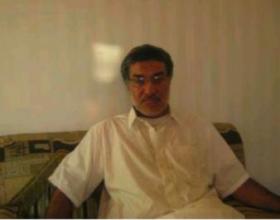
|
| Sufyan ben Qumu. |
A former Guantanamo detainee named Sufyan ben Qumu has been tied to the Sept. 11 attack on the US consulate in Benghazi, Libya that killed four Americans, including the US ambassador, FOX News has reported.
Senior US intelligence officials contacted by The Long War Journal say that Qumu is suspected of playing a direct role in the attack.
The details of Qumu's alleged involvement remain to be confirmed, but it isn't surprising that his name has surfaced in intelligence circles in connection with the Benghazi assault.
An unclassified report written in August fingers Qumu as a key al Qaeda operative in Libya. The report ("Al Qaeda in Libya: A Profile") was prepared by the research division of the Library of Congress (LOC) under an agreement with the Defense Department's Combating Terrorism Technical Support Office.
The report details al Qaeda's plans for Libya, including the growth of a clandestine terrorist network that has attempted to hide its presence. The US military has concluded that al Qaeda is in the final phase of a three-step process for developing a full-blown al Qaeda affiliate.
One of the al Qaeda-affiliated parties inside Libya is called Ansar al Sharia -- a brand used by al Qaeda chapters elsewhere, including inside Yemen. According to the report, Qumu leads an Ansar al Sharia brigade, which "has increasingly embodied al Qaeda's presence in Libya, as indicated by its active social-media propaganda, extremist discourse, and hatred of the West, especially the United States."
In interviews with the press, a representative of Ansar al Sharia Libya has denied direct involvement in the consulate attack.
In the LOC report, Qumu is described as "a former al Qaeda operative believed to have links with the al Qaeda's clandestine network in Darnah," which is in eastern Libya and has exported jihadists to the battlefields of Iraq and elsewhere. The report says that Qumu "is thought to be responsible for several bombings that targeted former public servants." And witnesses in eastern Libya also say that he has targeted "people who disagree with al Qaeda."
Qumu was first noticed in the press during the uprising against Qaddafi's regime. While not hiding his animosity for the US, he claimed that he was not really affiliated with al Qaeda.
But the LOC report indicates that al Qaeda "continue[s] to mask its presence under the umbrella of the Libyan Salafist movement," even though it is an "expansion phase." The terrorist organization does not want to draw international attention to the al Qaeda brand, so it is deliberately hiding its intentions, as well as the full scope of its capabilities.
Qumu was transferred from Guantanamo to Libya in 2007. In a leaked memorandum dated April 22, 2005, Joint Task Force-Guantanamo (JTF-GTMO) recommended that Qumu be transferred out of US custody, but only "if a satisfactory agreement can be reached that allows access to detainee and/or access to exploited intelligence." JTF-GTMO warned: "If a satisfactory agreement cannot be reached for his continued detention in Libya, he should be retained under [Defense Department] control."
Libyan authorities initially detained Qumu, but he was released from prison in 2010, reportedly as part of a general amnesty offered to jihadists during the Qaddafi regime's waning days.
JTF-GTMO pieced together the details of Qumu's career. He was trained as a tank driver in the Libyan military, but had some run-ins with the law. The Libyan government told the US that Qumu became a drug addict and was accused of a number of other crimes, including murder and assault. He was sentenced to 10 years in prison, but somehow escaped, making his way to Sudan, where he became a driver for one of Osama bin Laden's companies. When al Qaeda returned to Pakistan and Afghanistan, so did Qumu.
Qumu developed a constellation of connections to senior al Qaeda leaders, including some of the 9/11 conspirators. Qumu's alias was found on Mustafa Al Hawsawi's laptop. Al Hawsawi helped finance the 9/11 attacks. Qumu is listed on the computer "as an al Qaida member receiving family support."
Although the Qaddafi regime would eventually free him, the dictator's intelligence service had no illusions about Qumu's identity or capabilities. Qaddafi's spooks told US officials that Qumu is a "dangerous man with no qualms about committing terrorist acts," according to the JTF-GTMO file. The Libyans added that Qumu "was known as one of the extremist commanders of the Afghan Arabs."
US officials agreed with this assessment. JTF-GTMO deemed Qumu "a MEDIUM to HIGH risk, as he is likely to pose a threat to the US, its interests and allies."
[Note: A version of this article was first published by The Weekly Standard.]